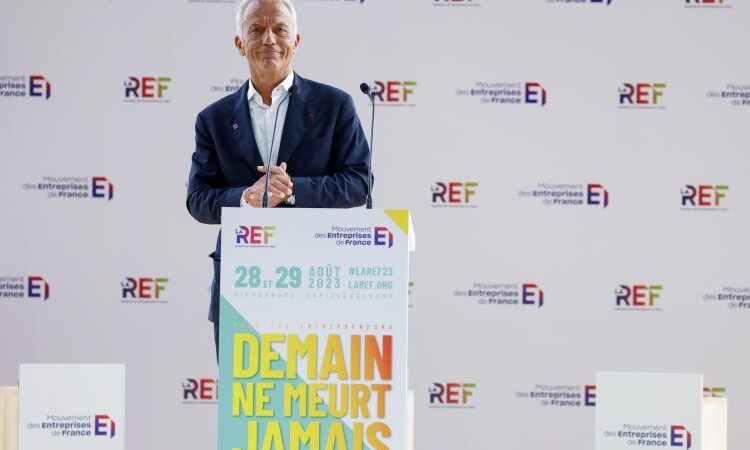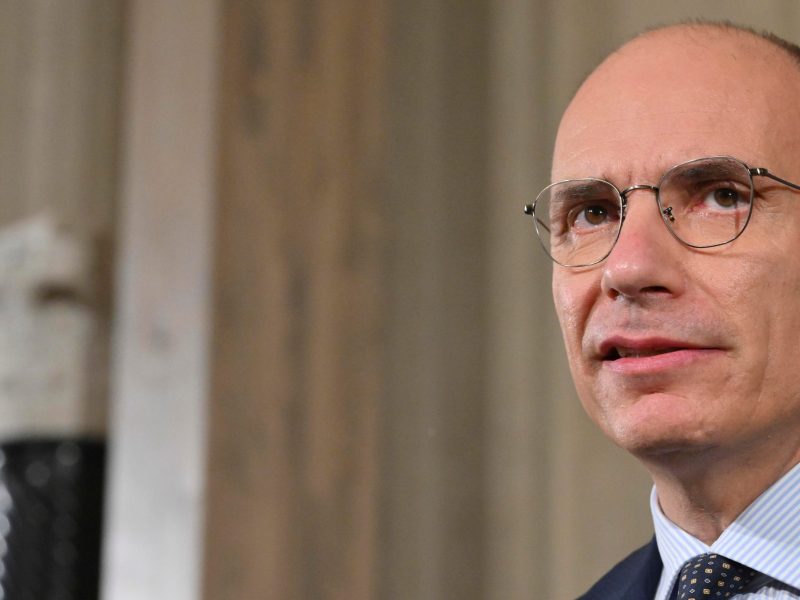As EU struggles to finance green investments, French businesses bet on capital markets union – Euractiv

Relaxing state aid rules is a step forward in unlocking new green financing, but “we must move quickly” on the capital markets union (CMU) to reach private investors’ money, French business association Medef’s chief Patrick Martin said on Monday (13 November).
The CMU, first introduced as a political goal under Jean-Claude Juncker’s European Commission leadership in 2015, looks to create a ‘single market for capital’, facilitate capital flows between member states, and increase the availability of growth capital in Europe.
The CMU, which has struggled to gain traction as it requires tackling barriers in a variety of policy sectors, is coming back to the fore as the EU looks for new cash sources to finance the green economy and support industrial decarbonisation.
“We are not opposed to the EU unlocking new financing,” Martin told journalists as he unveiled Medef’s new ‘EU strategy’ in Brussels on Monday, but he is well aware the absence of any new joint round of EU debt makes fresh cash harder to secure, as French businesses alone need “€40 billion a year to maintain their decarbonisation trajectories”.
A report published in May by French think tank France Stratégie estimates necessary green investment costs to top €66 billion annually up to 2030. Half of it should come from public money while the other half should come from private investors, the report predicts.
But “there is a collateral response [to green financing], it is that we move much faster on the CMU,” Martin said. “That doesn’t cost a penny for the EU”.
Could the implementation of the CMU – which could be felt on hundreds of legislative files that would need amending, and for which nitty-gritty negotiations have not started at all – be done fast enough to respond to the climate crisis?
“Climate urgency is here but it will not be solved tomorrow morning,” the Medef chief said, while “thousands of billions of euros can be mobilised through private sources […] to facilitate financing at the right scale”.
New traction
In many ways, Patrick Martin is following in the footsteps of political leaders, who have taken more explicit positions in favour of the CMU in the past months.
EU economy ministers from far and wide, first and foremost Germany’s Christian Lindner and his French counterpart Bruno Le Maire, have spoken in favour of greater capital integration.
“It is high time that we step up our efforts,” the two wrote in a joint Financial Times op-ed in September.
But there remain significant disagreements and questions over whether this only amounts to tapping into private investors’ pockets, or if it should be turbocharged by creating an EU “safe asset” – an argument former European Central Bank member Fabio Panetta, now governor of the Bank of Italy, has been pushing.
Key EU actors, including ECB President Christine Lagarde and insurance company Generali Group chief Andrea Sironi, have backed the idea.
Enrico Letta, who has recently been tasked with writing a report on the future of the EU’s single market, told Euractiv in an interview: “I think Panetta’s position is very strong and I share it”.
Christian Lindner, meanwhile, opposes the idea.
New cash on the horizon
At the height of the Russian invasion of Ukraine, and as the US rolled out its own massive investment and tax credit Inflation Reduction Act (IRA), the EU sought to respond mostly through a relaxation of state aid rules, ultimately making it easier for member states to use their own money to support industry growth and decarbonisation.
This, however, is now showing signs of market fragmentation, as member states with more fiscal power can more easily pour in public cash – to the detriment of more fiscally restrained counterparts.
In early September, fresh Commission data found by Euractiv showed that over 70% of the Commission’s state aid approvals went to either Germany (48.4%) or France (22.6%).
Meanwhile, in February 2023, the Commission introduced its Green Deal Industrial Plan, which mostly materialised in three critical pieces of legislation: the Critical Raw Materials Act (CRMA), the Net-Zero Industry Act (NZIA), and the electricity market design reform.
Finally, a conversation had started about a new EU Sovereignty Fund earlier this year, which would function as an EU-wide cash pot to help finance new green and digital projects, all the while correcting the imbalances caused by state aid relaxation.
But the Commission’s proposal, known as the Strategic Technologies for Europe Platform (STEP), is no more than a re-hashing of already-existing EU funds, with a €10 billion top-up from member states.
The Commission expects STEP to leverage up to €160 billion worth of private investments – predictions experts deem to be way out of line with reality.
And the option of having a new round of joint EU debt has so far been completely ruled out.
[Edited by János Allenbach-Ammann/Zoran Radosavljevic]









